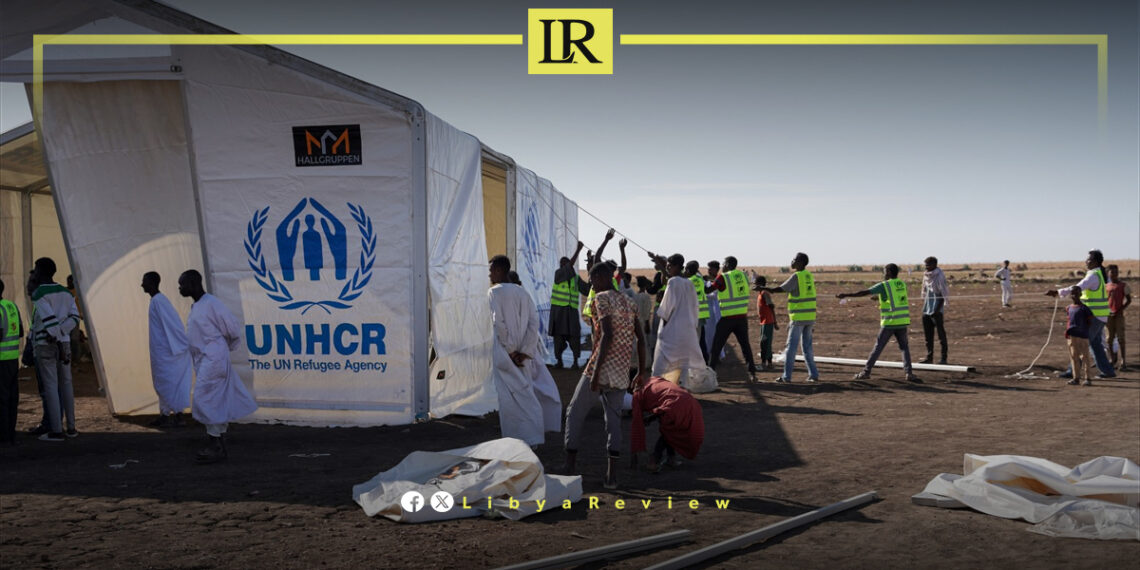On Monday, the United Nations High Commissioner for Refugees (UNHCR) reported that over 180,000 Sudanese refugees have arrived in Libya since the conflict in Sudan erupted in April 2023. This surge has placed enormous pressure on Libya’s infrastructure and resources, highlighting the growing humanitarian crisis in the region.
In its latest report, the UNHCR confirmed that more than 34,000 Sudanese refugees have registered with its centers in Tripoli since the conflict began, bringing the total number of registered individuals to 53,500.
The southern city of Kufra, a critical gateway for refugees crossing Libya’s border with Sudan, has received approximately 128,000 Sudanese refugees, with 400 to 500 new arrivals reported daily. Libyan authorities have issued over 92,000 health certificates this year to address the immediate medical needs of incoming refugees.
The UNHCR acknowledged the challenges of accurately assessing the number of refugees. Irregular entry points, fragmented data from local authorities, and Libya’s vast and remote borders with Chad, Egypt, and Sudan complicate the task. Many refugees continue to migrate toward coastal cities, further stretching Libya’s capacity to manage the crisis.
The refugee influx has significantly increased demands for basic services, including healthcare, water, sanitation, food, and shelter. The UNHCR described the living conditions of many refugees as alarming and stressed the urgent need for immediate assistance, particularly in providing clean water and preventing disease outbreaks. Southern Libya’s water and sanitation systems are under immense strain, exacerbating health risks in the region.
The civil war in Sudan, which began in April 2023, has forced millions of people to flee their homes, creating a regional humanitarian emergency. Libya, already dealing with post-conflict recovery and political instability, has seen a continuous flow of refugees crossing its southern borders. The city of Kufra has become a focal point for displaced Sudanese, despite its limited infrastructure and ability to support such large numbers.
This crisis has revealed the interconnectedness of conflicts in the region. Libya, while providing critical refuge, faces immense challenges in responding to the crisis, given its fragile governance and economic limitations.
The UNHCR has called for urgent international support to address the growing needs of Sudanese refugees in Libya. Immediate priorities include scaling up healthcare services, providing clean water, expanding shelter capacity, and delivering essential food and medical aid.


